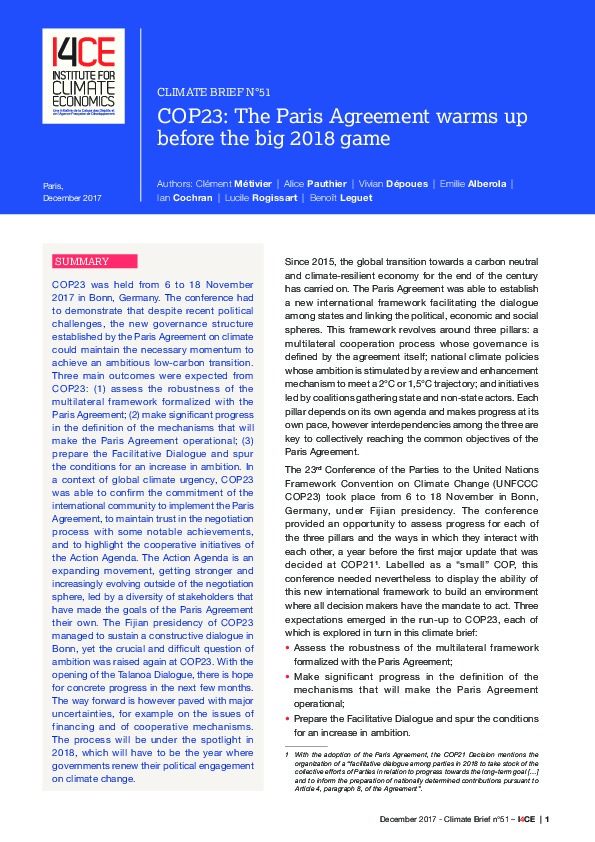COP23: The Paris Agreement warms up before the big 2018 game
COP23 was held from 6 to 18 November 2017 in Bonn, Germany. The conference had to demonstrate that despite recent political challenges, the new governance structure established by the Paris Agreement on climate could maintain the necessary momentum to achieve an ambitious low-carbon transition.
Three main outcomes were expected from COP23:
- (1) assess the robustness of the multilateral framework formalized with the Paris Agreement;
- (2) make significant progress in the definition of the mechanisms that will make the Paris Agreement operational;
- (3) prepare the Facilitative Dialogue and spur the conditions for an increase in ambition. In a context of global climate urgency,
COP23 was able to confirm the commitment of the international community to implement the Paris Agreement, to maintain trust in the negotiation process with some notable achievements, and to highlight the cooperative initiatives of
the Action Agenda. The Action Agenda is an expanding movement, getting stronger and increasingly evolving outside of the negotiation sphere, led by a diversity of stakeholders that have made the goals of the Paris Agreement their own.
The Fijian presidency of COP23 managed to sustain a constructive dialogue in Bonn, yet the crucial and difficult question of ambition was raised again at COP23. With the opening of the Talanoa Dialogue, there is hope for concrete progress in the next few months. The way forward is however paved with major uncertainties, for example on the issues of financing and of cooperative mechanisms. The process will be under the spotlight in 2018, which will have to be the year where governments renew their political engagement on climate change.


